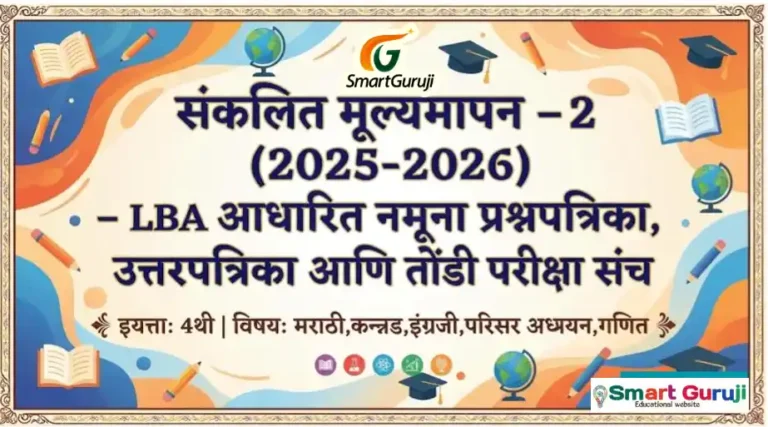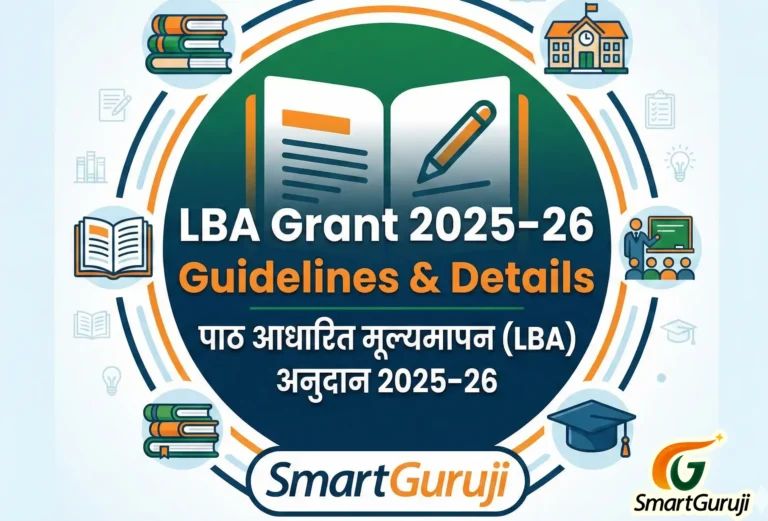Tip – These questions are not given by DSERT these are only for practice
CLASS -8
SUBJECT – ENGLISH (TL)
SYLLABUS – KARNATAKA STATE
MODEL QUESTION BANK OF LESSON BASED ASSESSMENT
ONLY FOR PRACTICE
Lesson Based Assessment
Class – 8 | Subject – English (Third Language) | POEM – 2: A CHILD’S EVENING PRAYER
Learning Outcomes:
- To understand the meaning and message of the poem.
- To identify the various prayers made by the child.
- To recognize the child’s feelings and intentions.
- To appreciate the importance of family and gratitude.
- To learn new vocabulary from the poem.
- To apply grammatical concepts related to the lesson.
- To understand the poet’s background and literary works.
I. Multiple Choice Questions: Choose the most appropriate option.
1. What does the child do before laying its limbs on the bed?
Difficulty: Easy
2. What does the child ask God to grant it?
Difficulty: Easy
3. For whom does the child first pray after itself?
Difficulty: Easy
4. What does the child wish for its mother?
Difficulty: Easy
5. What does the child promise to pay its father?
Difficulty: Easy
6. What does the child want to be for its parents?
Difficulty: Easy
7. From what does the child pray for its brothers to be preserved?
Difficulty: Average
8. What kind of heart does the child ask the Lord to impart?
Difficulty: Easy
9. What does ‘last sleep’ refer to in the poem?
Difficulty: Easy
10. What does the child hope to awake to after its last sleep?
Difficulty: Average
11. Who is the poet of ‘A Child’s Evening Prayer’?
Difficulty: Easy
12. Which of these is a famous poem by Samuel Taylor Coleridge?
Difficulty: Average
13. The word ‘grace’ in the poem means:
Difficulty: Easy
14. What is the meaning of ‘reverence’?
Difficulty: Easy
15. The word ‘sloth’ in the poem means:
Difficulty: Easy
16. What does ‘ere’ mean?
Difficulty: Easy
17. What is the meaning of ‘impart’?
Difficulty: Average
18. The child prays for its parents to be preserved in:
Difficulty: Easy
19. The child wants to employ its best thoughts to be its parents’:
Difficulty: Average
20. What is the opposite of ‘comfort’ from the vocabulary section?
Difficulty: Easy
21. Which word is the opposite of ‘curable’?
Difficulty: Easy
22. Which pair of words has nearly the same meaning as ‘learn’?
Difficulty: Average
23. What is the other gender for ‘sir’?
Difficulty: Easy
24. What is the noun form of ‘active’?
Difficulty: Easy
25. The phrase ‘one another’ is used when we speak of:
Difficulty: Easy
26. A group of soldiers is called an:
Difficulty: Easy
27. Choose the correct word: Anand, can you see ___________ (yourself, himself)?
Difficulty: Easy
28. Complete the sentence with a suitable question word: ___________old are you?
Difficulty: Easy
29. What does the child hope for its brothers and itself regarding their relationships?
Difficulty: Average
30. What is the main theme of ‘A Child’s Evening Prayer’?
Difficulty: Average
II. Answer the following questions in a word, a phrase or a sentence each: (1 Mark)
1. What is the child’s prayer about?
Difficulty: Easy
2. What does ‘grace’ mean in the poem?
Difficulty: Easy
3. Who is the child praying to?
Difficulty: Easy
4. What does the child want to employ its ‘best thoughts’ for?
Difficulty: Average
5. What does the child pray for its brothers to be preserved from?
Difficulty: Average
6. What kind of heart does the child ask for?
Difficulty: Easy
7. What is the meaning of ‘eternal’?
Difficulty: Easy
8. Name one famous poem by Samuel Taylor Coleridge.
Difficulty: Easy
9. What is the noun form of ‘weak’?
Difficulty: Easy
10. What is the collective noun for ‘players’?
Difficulty: Easy
11. Complete the sentence: Ramu and Somu took care of _________.
Difficulty: Easy
12. Which question word would you use to ask about a person’s identity?
Difficulty: Easy
III. Answer the following questions in two to three sentences each: (2-3 Marks)
1. What does the child pray for its mother and father?
Difficulty: Average
2. How does the child express its desire to be a good child to its parents?
Difficulty: Average
3. What is the significance of the child asking for an ‘innocent and grateful heart’?
Difficulty: Difficult
4. Explain the meaning of ‘eternal day’ in the context of the poem.
Difficulty: Difficult
5. “O God! Preserve my mother dear In health and strength for many a year.”
Difficulty: Average
6. “And, O! preserve my father too, And may I pay him reverence due;”
Difficulty: Average
7. “And still, O Lord, to me impart An innocent and grateful heart,”
Difficulty: Average
IV. Fill in the blanks with the correct answers:
1. Ere on my bed my limbs I _________.
Difficulty: Easy
2. O God! Preserve my mother dear In health and _________ for many a year.
Difficulty: Easy
3. And may I my best thoughts _________ To be my parent’s hope and joy!
Difficulty: Average
4. And O! preserve my brothers both From evil doings and from _________.
Difficulty: Easy
5. That after my last sleep I may Awake to thy _________ day.
Difficulty: Average
6. True religion teaches us to love _________.
Difficulty: Easy
7. Karna and Arjuna hated _________.
Difficulty: Easy
8. A _________ of students.
Difficulty: Easy
9. A _________ of rain.
Difficulty: Easy
10. That car belongs to _________ (them, they).
Difficulty: Easy
V. Match the following:
1. Match the words with their meanings:
| Column A | Column B |
|---|---|
| 1. grace | a. bad, harmful |
| 2. reverence | b. thankfulness |
| 3. evil | c. charm |
| 4. grateful | d. respect |
Difficulty: Average
2. Match the words with their opposites:
| Column A | Column B |
|---|---|
| 1. comfort | a. impossible |
| 2. curable | b. discomfort |
| 3. steady | c. incurable |
| 4. possible | d. unsteady |
Difficulty: Average
3. Match the collective nouns:
| Column A | Column B |
|---|---|
| 1. a library of | a. stamps |
| 2. a bunch of | b. shoes |
| 3. a pair of | c. books |
| 4. a collection of | d. keys |
Difficulty: Easy
VI. ಕೆಳಗಿನ ಕವಿತೆಯ ಸಾಲುಗಳನ್ನು ಪೂರ್ಣಗೊಳಿಸಿ: (Complete the lines of the poem below:)
1. Ere on my bed my limbs I lay, God grant me grace my prayers _________;
Difficulty: Easy
2. And, O! preserve my father too, And may I pay him _________;
Difficulty: Average
3. And may I my best thoughts employ To be my parent’s hope and _________!
Difficulty: Easy
4. And O! preserve my brothers both From evil doings and from _________.
Difficulty: Easy
5. That after my last sleep I may Awake to thy _________ day.
Difficulty: Average
VII. Write True or False for the following statements:
1. The child prays only for itself.
Difficulty: Easy
2. The child asks God to make its parents rich.
Difficulty: Easy
3. ‘Sloth’ means being very active.
Difficulty: Easy
4. Samuel Taylor Coleridge was an American poet.
Difficulty: Average
5. The child wishes for an innocent and grateful heart.
Difficulty: Easy
6. The phrase ‘each other’ is used for more than two persons.
Difficulty: Easy
7. ‘Biographia Literaria’ is a poem by Coleridge.
Difficulty: Average
Answer Key
I. Multiple Choice Questions:
- B. Prays
- B. Grace
- C. Its mother
- B. Health and strength
- B. Reverence due
- C. Hope and joy
- B. Evil doings and sloth
- B. An innocent and grateful heart
- B. Death
- B. Thy eternal day
- C. Samuel Taylor Coleridge
- B. The Rime of the Ancient Mariner
- B. Charm
- C. Respect
- B. Laziness
- C. Before
- C. Bestow
- B. Health and strength
- B. Hope and joy
- B. Discomfort
- C. Incurable
- B. Remember, recollect
- A. Madam
- B. Activity
- B. More than two persons or things
- C. Army
- A. yourself
- C. How
- B. To always love each other
- C. Family love and gratitude
II. Answer the following questions in a word, a phrase or a sentence each:
- It is about a child’s evening prayer for its family and itself.
- Grace means charm.
- The child is praying to God.
- The child wants to employ its best thoughts to be its parents’ hope and joy.
- The child prays for its brothers to be preserved from evil doings and from sloth (laziness).
- The child asks for an innocent and grateful heart.
- Eternal means everlasting.
- One famous poem by S. T. Coleridge is ‘The Rime of the Ancient Mariner’.
- Weakness.
- A team of players.
- each other.
- Who.
III. Answer the following questions in two to three sentences each:
- The child prays for its mother to be preserved in health and strength for many years. For its father, the child prays for his preservation and promises to pay him due reverence (respect).
- The child expresses its desire to be a good child by stating, “And may I my best thoughts employ / To be my parent’s hope and joy!” This shows its intention to use its mind and actions to bring happiness to its parents.
- Asking for an ‘innocent and grateful heart’ signifies the child’s wish to remain pure, free from sin, and always thankful for God’s blessings and the love of its family. It reflects a desire for spiritual purity and appreciation.
- ‘Eternal day’ refers to everlasting life with God after death. It implies a belief in an afterlife where the child will awaken to a timeless, divine presence, free from earthly limitations.
- a. The child is the speaker of these lines. b. The speaker is praying for the preservation of its mother’s health and strength for many years. c. ‘Preserve’ here means to keep safe or protect.
- a. The child is praying for its father to be preserved and for itself to be able to show him proper respect. b. ‘Reverence due’ implies the respect and honour that is rightfully owed to a father. c. This shows the child’s respectful and dutiful quality towards its father.
- a. ‘Me’ in these lines refers to the child who is praying. b. The child is asking the Lord to give it an innocent and grateful heart. c. ‘Grateful’ means feeling or showing thanks to someone for something good.
IV. Fill in the blanks with the correct answers:
- lay
- strength
- employ
- sloth
- eternal
- one another
- each other
- class
- shower
- them
V. Match the following:
- 1-c, 2-d, 3-a, 4-b
- 1-b, 2-c, 3-d, 4-a
- 1-c, 2-d, 3-b, 4-a
VI. ಕೆಳಗಿನ ಕವಿತೆಯ ಸಾಲುಗಳನ್ನು ಪೂರ್ಣಗೊಳಿಸಿ: (Complete the lines of the poem below:)
- say
- reverence due
- joy
- sloth
- eternal
VII. Write True or False for the following statements:
- False
- False
- False
- False
- True
- False
- False




